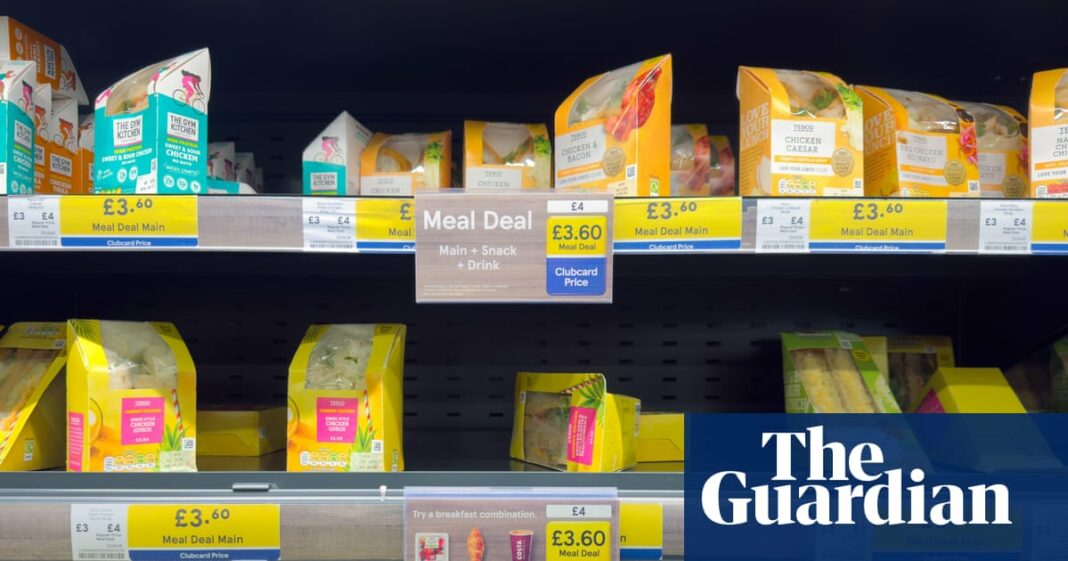Tesco has put the price of its meal deal up by 25p, its third increase since 2022, as food prices across the UK continue to race higher.
The meal deal now costs £3.85 for Clubcard holders. Customers who do not have a Tesco loyalty card will pay £4.25.
The latest official inflation figures, released this week, showed that the price of food and non-alcoholic beverages rose 4.9% year on year in July, from 4.5% in the 12 months to June.
Some retailers have chosen to pass on the soaring costs of ingredients to consumers. Heatwaves and droughts in parts of Spain, Italy and Portugal, where the UK sources a lot of its fresh fruit and vegetables, have pushed up prices this summer, at a time when they would usually fall. Beef, orange juice, coffee and chocolate were among the worst-hit products.
Some shoppers expressed dismay at the price increase by the UK’s biggest grocer. On X, one user wrote: “Discovering that a Tesco meal deal will be £3.85 *with* a Clubcard from Thursday was truly devastating.”
Another questioned whether it could still be termed a “deal”.
Tesco’s sandwich, snack and drink deal had cost £3 for 10 years before prices jumped in October 2022, in the depths of the cost of living crisis.
after newsletter promotion
However, Tesco is not the first major supermarket group to frustrate customers by raising the price of its meal deal. In June, Sainsbury’s increased the price of its standard offering from £3.75 to £3.95. It was the second time Sainsbury’s had increased the price in under a year, after raisingit by 25p in July 2024.
The Tesco deal still offers significant savings, depending on the meal combination. A shopper who selected a brie and smoked bacon sandwich with chilli jam, which costs £3.25 when sold alone, as the main meal, vegetable samosa for £1.75 as the snack, and a Naked smoothie for £2.90 would save £4.05 with a Clubcard, and £3.65 without. The combination would cost £7.90 without the deal.
On Thursday, more than 60 chief executives of Britain’s biggest retailers, including Tesco, Sainsbury’s, John Lewis and Boots, wrote to the chancellor, Rachel Reeves, to warn her that further taxes on businesses in the autumn budget could contradict her plans to improve UK living standards.
They suggested that food price inflation could hit 6% this year, arguing that they would not be able to “absorb” further tax rises, instead passing the higher costs on to shoppers.
Retailers have repeatedly bemoaned the impact of Reeves’ increase to employer national insurance contributions, while an increase to the national minimum wage in April also raised labour costs.
The retailers said in the letter, sent by the British Retail Consortium: “Labour’s manifesto made a clear and welcome promise to deliver good jobs and higher living standards but if future policy decisions lead to rising prices and fewer jobs, then those commitments are at risk.”



